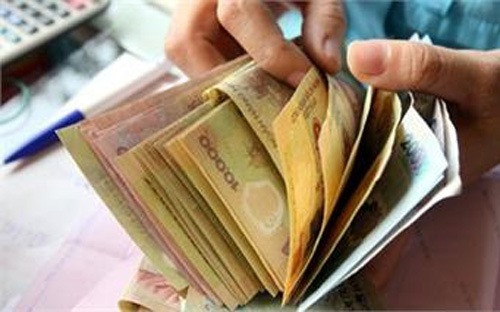Increase base salary by saving 10% of regular expenses
The National Assembly Resolution states: Use the 10% savings in regular expenditure to increase the source for salary reform in 2013.

Photo vneconomy
At 8:30 this morning (November 15), the National Assembly passed the Resolution on central budget allocation for 2013 with an approval rate of 90.96%.
Previously, the National Assembly voted to pass Article 1 of the Resolution with the following content: Total central budget revenue is 519,836 billion VND. Total local budget revenue is 296,164 billion VND.
Total central budget balance expenditure is 681,836 billion VND, including 193,595 billion VND of additional balance and targeted supplement from the central budget to local budgets.
Article 1 was passed by the National Assembly with an approval rate of 91.57%.
The National Assembly also voted to pass Article 2 of the Resolution with a high approval rate. The content of Article 2 is the allocation of the 2013 central budget to each ministry, branch, and central agency and the additional level from the central budget to the budget of each province and centrally-run city.
The Resolution assigns the Government to deploy the assignment of state budget revenue and expenditure tasks and the central budget allocation level to each ministry, branch, central agency and each province and centrally run city in accordance with the provisions of the State Budget Law, Resolutions of the National Assembly, Resolutions of the National Assembly Standing Committee and notify each National Assembly delegation of the province and centrally run city.
Direct the People's Committees of provinces and centrally run cities to submit to the People's Councils of the same level for decision on the state budget revenue estimates in the locality, the local budget expenditure estimates, and decide on the allocation of the budget estimates according to their authority and in accordance with the provisions of law.
Direct ministries, branches, central agencies and People's Committees at all levels to decide on the allocation of the 2013 state budget revenue and expenditure estimates in accordance with the National Assembly's Resolution to each state budget beneficiary unit before December 31, 2012; publicly disclose the budget estimates in accordance with the provisions of the State Budget Law; report to the National Assembly on the progress and results of the allocation and assignment of the budget estimates of ministries, branches, central agencies and localities at the fifth session of the 13th National Assembly.
Review the content, tasks and component projects, develop a specific allocation plan for the National Target Program on Climate Change Response and the National Target Program on Pollution Remediation and Environmental Improvement, report to the National Assembly Standing Committee for decision and implementation of allocation and assignment of budget estimates before December 31, 2012.
The Resolution directs ministries, branches, and agencies at the central and local levels to: Allocate development investment expenditures to ensure priority is given to repaying debts for basic construction and projects that can be completed in 2013; minimize the commencement of new projects, arrange for repayment of advanced budget capital, and ensure sufficient counterpart capital for projects using official development assistance (ODA) capital. Investment projects and works must be implemented according to the assigned budget, and only advance capital for projects that are truly urgent.
Use the 10% savings on regular expenses (after deducting salaries and salary-related expenses) to increase the source for salary reform in 2013.
The People's Councils and People's Committees of provinces and centrally run cities are responsible for arranging counterpart funds from local budgets according to regulations to implement national target programs managed by localities.
The Resolution also requires strict control of development investment expenditure estimates assigned to corporations, general companies, and state-owned enterprises to implement, ensuring efficiency and preventing loss and waste; strengthening management and strict control of loans with and without government guarantees for foreign loans of enterprises, especially state-owned enterprises, ensuring debt repayment capacity, effective use of capital, and maintaining national financial security./.
According to (vov.vn) - LT






